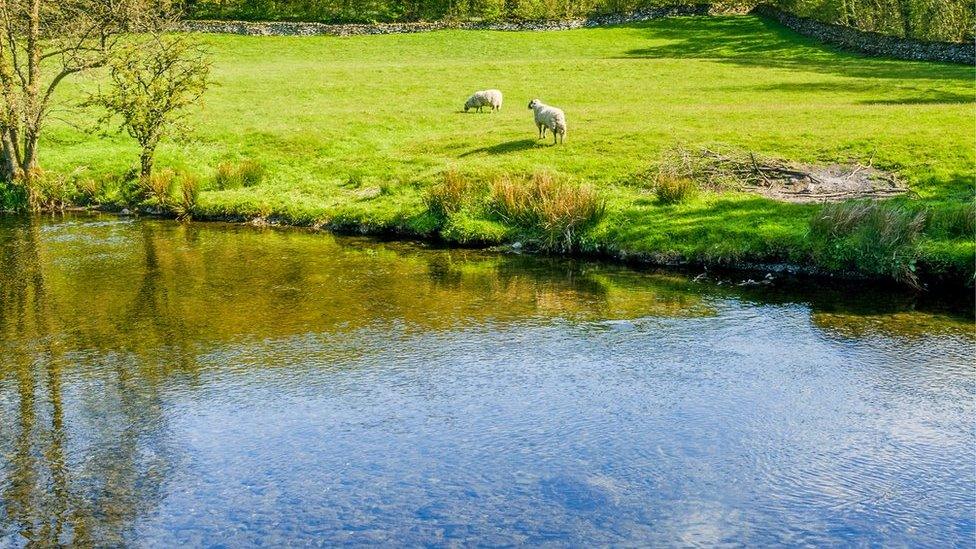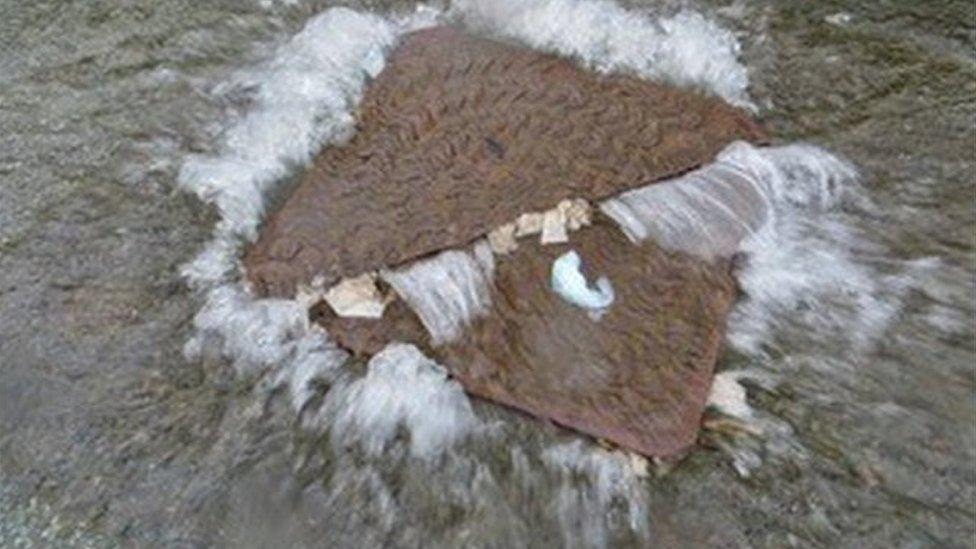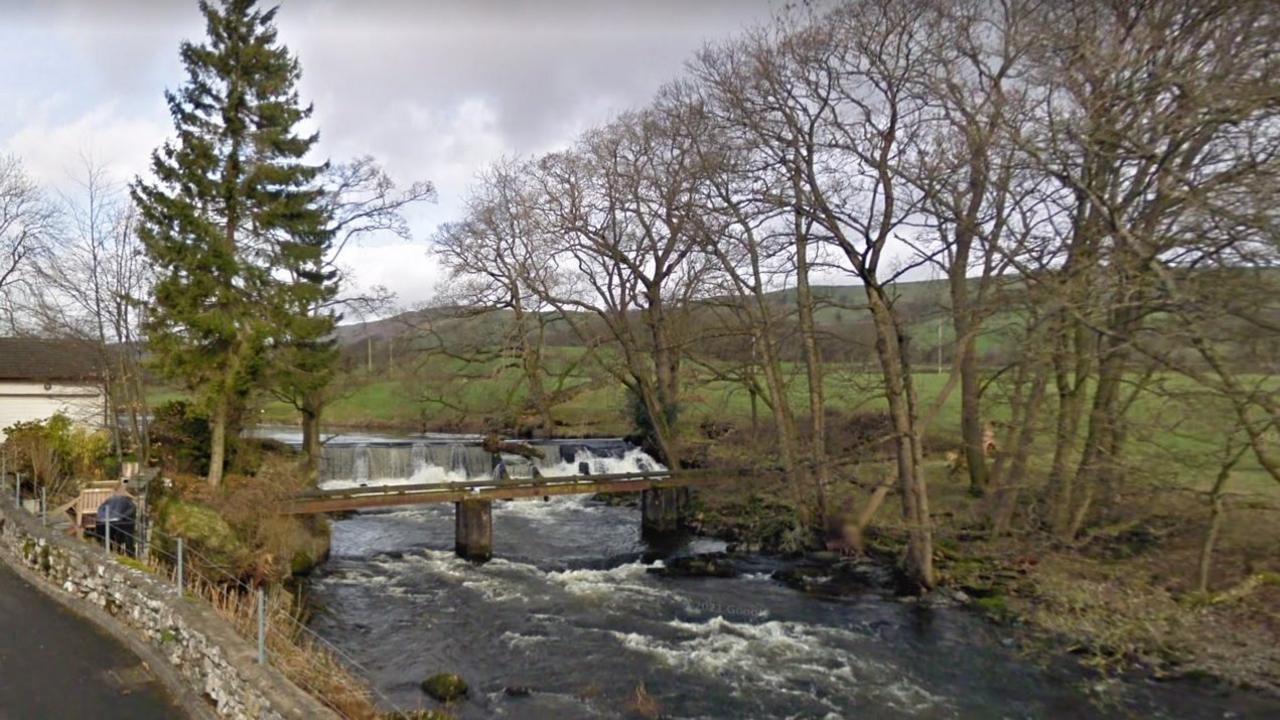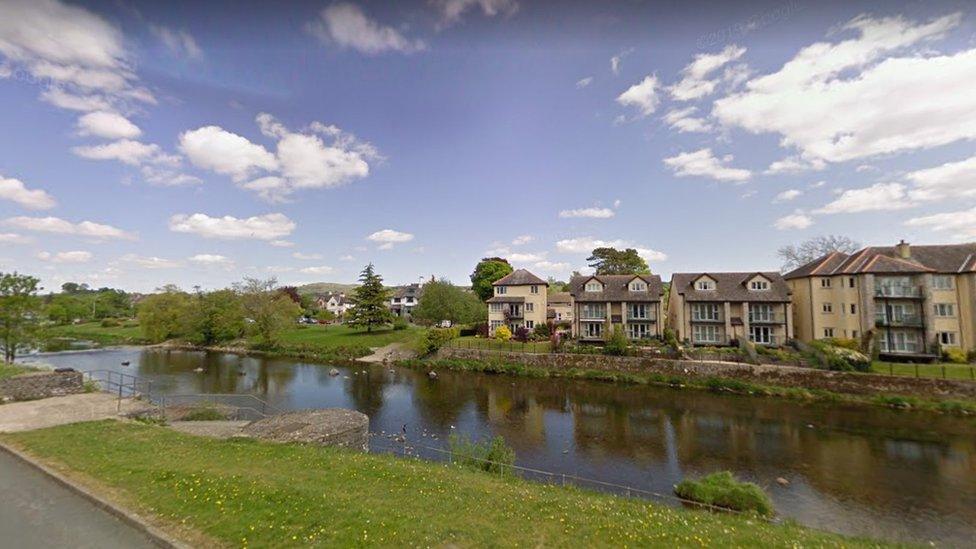River Kent: Bacteria 500 times greater downriver of waste water plant
- Published

The River Kent runs north from Staveley and south through Kendal and to the sea
Harmful bacteria levels in a protected river are 500 times greater downriver of a sewage treatment works than before it, campaigners say.
Hundreds of "emergency discharges" have poured raw sewage into the River Kent in Cumbria over a three-year period.
Water firms must end discharges rather than "trying to mitigate problems they cause", campaigner Matt Staniek said.
United Utilities, which runs the treatment works, said it was not required to remove bacteria.
"Our treatment works at Staveley operates according to its environmental permit," a spokesperson said.
"However, we have been in discussions with the Clean River Kent Campaign about how we can support their aspirations to designate sections of the river as a bathing water which, if successful, could lead to investment in improved levels of treatment."
The company's figures show there were 1,050 permitted emergency spills of raw sewage at the treatment plant between 2018 and 2020.

Residents in Staveley say roads and gardens flood about 10 times a year
Meanwhile, Staveley's MP has called for tougher laws on sewage discharges into rivers and coastal waters.
Tim Farron, the Liberal Democrat member for Westmorland and Lonsdale, wants mandatory targets and timescales for ending spillages imposed on water companies and for them to face greater enforcement.
His proposals, submitted on Tuesday as a Ten Minute Rule Bill, would also require water company boards to have representatives from environmental groups.
Speaking in the Commons, he said his bill aimed "to stop the water companies putting their personal treasure ahead of our natural treasure".
He said: "Their chief executives earn seven-figure sums and yet they are free by law to preside over enormous numbers of dangerous discharges that damage our environment, our wildlife and are a threat to human life too."
United Utilities said it had already committed investment for new requirements of water companies.
"However, 70% of the pollution affecting our rivers comes from other sources and it will take coordinated action from regulators, farmers, septic tank owners and others to bring about the environmental improvements we all want to see," a spokesperson said.

Follow BBC North East & Cumbria on Twitter, external, Facebook, external and Instagram, external. Send your story ideas to northeastandcumbria@bbc.co.uk, external.
- Published4 August 2021

- Published3 March 2022

- Published4 August 2021
